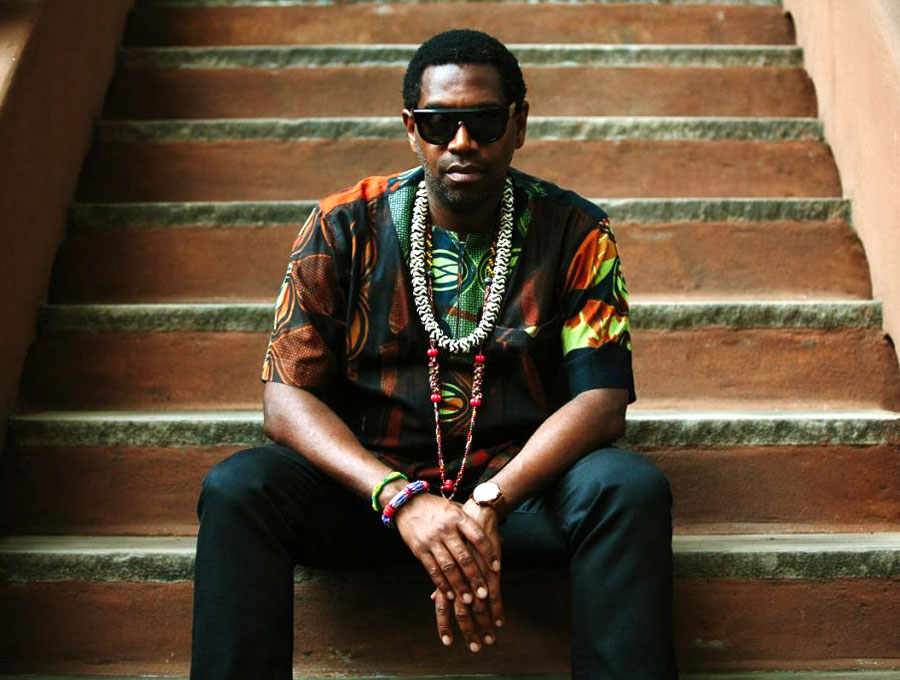Yosvany Terry is a groundbreaking artist at the intersection of Afro-Cuban music and Cuban jazz, redefining the cultural landscape through his innovative approach. As a senior lecturer on music at Harvard and the director of the Harvard Jazz Ensembles, Terry embodies the rich musical traditions that stem from the African diaspora influence. His recent research journeys to Benin and Cuba delve into the connections between the musical heritages of these regions, illustrating how tradition safeguards culture and identity. By merging contemporary soundscapes with historical insights, Yosvany Terry not only educates his students but also invigorates the broader conversation about musical evolution. Through his engaging performances and educational initiatives, Terry emphasizes the importance of collaboration among varied cultural and artistic expressions, highlighting the vital role of African and Afro-Cuban musical traditions in today’s artistic expressions.
Renowned musician Yosvany Terry has dedicated his career to exploring the profound roots of Afro-Cuban and Cuban jazz, making significant contributions to the arts community. His insights into the impact of the African diaspora on contemporary music reveal how enduring musical legacies shape cultural identity. By seeking connections between distinct musical traditions, particularly between West Africa and the Caribbean, Terry enriches his role as an educator and performer. His work not only illuminates the historical context of these genres but also inspires a new generation of artists to engage with diverse musical influences. As an ardent advocate for the preservation and celebration of these traditions, Terry serves as a bridge between past and present, cultivating a greater appreciation for the rich tapestry of global musical heritage.
Exploring Afro-Cuban Music and Its Roots
Afro-Cuban music has a rich tapestry woven from the intricate threads of African rhythms, Spanish melodies, and the historical context of the island. Yosvany Terry, through his extensive research, highlights how the essence of these musical styles can be traced back to the African diaspora’s influence. In his recent travels to Benin, he emphasized the connections between the musical traditions found in West Africa and those flourishing in Cuba, particularly in the context of jazz. This blending of cultures underscores the importance of preserving these musical legacies that continue to shape identity in both regions.
During his educational initiatives at Harvard, Terry aims to instill an appreciation of Afro-Cuban music’s deep roots in his students. By demonstrating how these musical traditions survived the turbulent history of colonization and slavery, he sheds light on their significance in modern compositions. His upcoming performances aim to not only entertain but also inform audiences about these cultural ties, showcasing how Afro-Cuban rhythms are more than just music; they are a testament to resilience and artistic heritage.
Yosvany Terry’s Musical Innovations
Yosvany Terry has consistently pushed the boundaries of modern Cuban jazz, incorporating traditional elements that honor the rich history of Afro-Cuban music. His approach involves exploring new sounds while grounding his work in the foundational rhythms of the African diaspora. By blending traditional techniques with contemporary jazz forms, Terry creates a unique auditory experience that captivates audiences and inspires fellow musicians. His commitment to innovation is evident in his latest project, which intertwines his research findings from Benin with the musical styles he has cultivated throughout his career.
In the classroom, Terry emphasizes the importance of understanding historical contexts and cultural influences that shape contemporary music. He encourages students to think critically about the origins and transformations of musical styles, fostering an environment where curiosity thrives. This deep exploration of Afro-Cuban music not only enriches the students’ artistic education but also empowers them to contribute to the evolving tapestry of jazz and world music.
The Impact of ArtsThursdays on Community Engagement
The ArtsThursdays initiative, spearheaded by the Harvard University Committee on the Arts, plays a pivotal role in increasing the visibility of artistic expressions within and beyond the Harvard community. By featuring performances from faculty members like Yosvany Terry, this program not only celebrates the arts but also encourages collaborative efforts across different disciplines. Through free concerts and workshops, ArtsThursdays fosters a vibrant atmosphere where students and community members alike can engage with diverse artistic practices, including Afro-Cuban music.
Moreover, ArtsThursdays serves as a platform for artists to connect their research and performances to broader cultural narratives. Terry’s upcoming performance, which reflects his research journey, will highlight the intertwined histories of African and Caribbean musical traditions, offering audiences a live experience of how these elements coexist within contemporary music. Such programming not only enriches the university’s arts scene but also strengthens the community’s appreciation for the intricate layers of cultural identity present in musical traditions.
Preserving Cultural Heritage Through Education
Yosvany Terry’s dedication to preserving cultural heritage through education is evident in his approach to teaching music at Harvard. By sharing his knowledge of the African diaspora’s influence on modern musical forms, he empowers students to recognize the importance of cultural heritage in their artistic practices. This educational framework encourages students to explore the historical significances behind musical styles, particularly those stemming from the Afro-Cuban tradition.
Terry’s innovative teaching methods involve incorporating primary source materials from his research in Benin and Cuba, allowing students to engage directly with the roots of Afro-Cuban music. This hands-on approach not only deepens their understanding of musical traditions but also cultivates a new generation of artists who can advocate for and continue these practices. By instilling a sense of cultural responsibility, Terry equips his students with the tools necessary to navigate and contribute to the evolving landscape of music both within and outside of academic settings.
The Fusion of African and Caribbean Musical Practices
The fusion of African and Caribbean musical practices represents a dynamic narrative of cultural exchange and adaptation. Yosvany Terry’s explorations highlight how the music of the African diaspora continues to inform styles that are prevalent today, particularly in Cuba where the heritage of enslaved Africans has led to rich and complex musical expressions. In his work, Terry emphasizes that understanding this synthesis is vital for appreciating the nuances found in genres like Cuban jazz.
Through performances and educational initiatives, Terry showcases how these musical practices are not only historical artifacts but living traditions that evolve over time. Engaging with musicians from both Benin and Cuba, he signifies the importance of preserving these traditions while allowing them to innovate. This cross-cultural collaboration illustrates the ongoing dialogue between African and Caribbean music, inspiring artists and students to create works that honor their diverse influences and cultural histories.
Cuban Jazz: A World Stage
Cuban jazz has garnered international acclaim, serving as a bridge between disparate musical worlds. As a vital part of the global jazz narrative, musicians like Yosvany Terry exemplify how Cuban artists intertwine traditional Afro-Cuban rhythms with contemporary jazz elements. In his role at Harvard, Terry brings this rich tradition to the forefront, educating students about these global connections and encouraging them to contribute to this ever-evolving art form.
The global embrace of Cuban jazz resonates with audiences and musicians alike, demonstrating the power of music as a tool for cultural diplomacy. By highlighting performances that incorporate Afro-Cuban elements and sharing stories of resilience and heritage, Terry fosters a deeper appreciation for this vibrant musical tradition. His efforts not only elevate Cuban jazz on the world stage but also encourage a collaborative spirit among musicians from diverse backgrounds to explore their musical intersections.
Yosvany Terry’s Vision for Future Artists
Yosvany Terry envisions a future where artists are deeply connected to their cultural roots and engaged in collaborative practices that enrich the arts landscape. By nurturing students who appreciate the significance of Afro-Cuban music and its global impact, he aims to cultivate a new generation of musicians who carry forward these traditions. His teaching philosophy emphasizes the need for artists to remain curious and adaptable, skills essential for navigating the contemporary music scene.
In advancing this vision, Terry believes that partnerships between artists, educators, and community members are crucial. Initiatives like ArtsThursdays exemplify the collaborative potential within the arts, encouraging creativity that transcends boundaries. As Terry continues to inspire his students, he lays the groundwork for a dynamic future where cultural traditions and innovations coalesce harmoniously, paving the way for meaningful artistic expression that honors the past while embracing the future.
Interdisciplinary Collaboration in Arts Education
Yosvany Terry sees immense value in interdisciplinary collaboration within arts education, recognizing that diverse perspectives enhance creative outcomes. His collaborations with colleagues across different departments at Harvard showcase how merging disciplines can lead to innovative approaches to music education. By integrating technology, such as AI, with traditional musical practices, Terry explores new artistic possibilities that may not have been fully realized before.
This interdisciplinary focus not only enriches the learning experience for students but also establishes a model for how the arts can engage with other fields of study. Terry’s collaborations demonstrate the importance of working across boundaries to inspire fresh ideas and foster a dynamic artistic community. Through these interactions, students are exposed to a multitude of influences that prepare them for a multifaceted career in the arts, emphasizing the relevance of cultural traditions in contemporary contexts.
Connecting African Roots to Global Jazz Innovations
Yosvany Terry’s work is deeply rooted in connecting African origins to the innovations of global jazz. His extensive research in Benin sheds light on how African musical traditions have profoundly influenced Caribbean music and broader jazz forms. This connection emphasizes that understanding the past is fundamental to evolving future sounds, as generational echoes of traditional rhythms resonate in modern compositions.
In presenting this historical context, Terry not only informs his audiences but fosters a deeper emotional connection to the music. His performances are characterized by a blend of traditional motifs and contemporary influences, showcasing the powerful legacy of the African diaspora in shaping global jazz. By cultivating this understanding, he not only preserves the significance of cultural histories but also inspires future generations of musicians to explore and redefine the boundaries of their art.
Frequently Asked Questions
What is Yosvany Terry’s contribution to Afro-Cuban music?
Yosvany Terry is a prominent figure in Afro-Cuban music, known for his innovative compositions and performances that bridge traditional Cuban rhythms with contemporary jazz influences. As a senior lecturer and director of the Harvard Jazz Ensembles, he actively incorporates Afro-Cuban musical traditions into his teaching and research, enriching the cultural landscape of both jazz and Afro-Cuban music.
How does Yosvany Terry’s research connect African diaspora influence with Cuban jazz?
Yosvany Terry’s research explores the deep connections between African diaspora influence and Cuban jazz by examining the roots of modern jazz in Afro-Cuban musical traditions. His travels to Benin and Cuba have enabled him to engage directly with musicians who preserve these traditions, providing insights into how historical influences shape present-day musical styles.
What role does Yosvany Terry play in promoting Harvard arts initiatives?
Yosvany Terry plays a pivotal role in promoting the arts at Harvard through his leadership of the Harvard Jazz Ensembles and his involvement in initiatives like ArtsThursdays. He encourages collaboration across disciplines, bringing visibility to artistic endeavors at the university while mentoring students in understanding Afro-Cuban music and its cultural significance.
How does Yosvany Terry incorporate his findings from Benin into classroom teaching?
Yosvany Terry integrates his findings from his research in Benin directly into his classroom teaching by providing students access to primary source materials, emphasizing the preservation of musical traditions. He aims to highlight the influence of these traditions on the evolution of jazz and popular music in the Americas, fostering a deeper appreciation for Afro-Cuban musical heritage.
What unique experiences do students gain from participating in Yosvany Terry’s jazz program at Harvard?
Students in Yosvany Terry’s jazz program gain unique experiences through hands-on learning opportunities, including travel to Cuba and the Dominican Republic. These trips focus on engaging with local musicians, participating in workshops, and attending lectures, allowing students to immerse themselves in the musical traditions they study and develop a well-rounded musical acumen.
How does Yosvany Terry’s work reflect the importance of musical traditions in safeguarding culture?
Yosvany Terry’s work reflects the importance of musical traditions in safeguarding culture by documenting and performing Afro-Cuban music that embodies the resistance and identity of the African diaspora. His performances and educational initiatives strive to bring overlooked cultural narratives into public consciousness, emphasizing the role of music as a means of cultural preservation.
What is the focus of Yosvany Terry’s upcoming performance on May 1?
Yosvany Terry’s upcoming performance on May 1, titled ‘Imaginary Dialogues: Dahomey’, will showcase the connections between Afro-Cuban music and the cultural heritage of Benin. This event will highlight his research findings, illustrating the links between past and present musical traditions and engage audiences in the rich narratives of the African diaspora.
| Key Point | Details |
|---|---|
| Research Focus | Yosvany Terry’s research explores the connections between musical traditions of Benin and the Caribbean, examining how African diaspora influences modern jazz. |
| Cultural Preservation | Terry highlights the importance of preserving cultural identities, especially through music, as a form of resistance against colonial pressures. |
| Educational Goals | Terry aims to provide his students with direct access to these musical traditions to explore their impact on contemporary culture and identity. |
| ArtsThursdays Initiative | ArtsThursdays has raised the profile of arts at Harvard and encourages interdisciplinary collaboration, culminating in a performance that ties research to artistic expression. |
| Future Aspirations | Terry envisions a growing diversity of musical traditions at Harvard and continued engagement with outside artists to foster innovation in the arts. |
Summary
Yosvany Terry stands at the intersection of tradition and innovation, blending his rich cultural heritage from Cuba and insights from Benin into a transformative educational experience at Harvard. His research and performances not only celebrate the roots of jazz but also highlight the enduring power of music as a protector of identity and culture. As he continues to inspire his students and audiences alike, Terry exemplifies how art serves to educate, connect, and enrich our understanding of the world.



